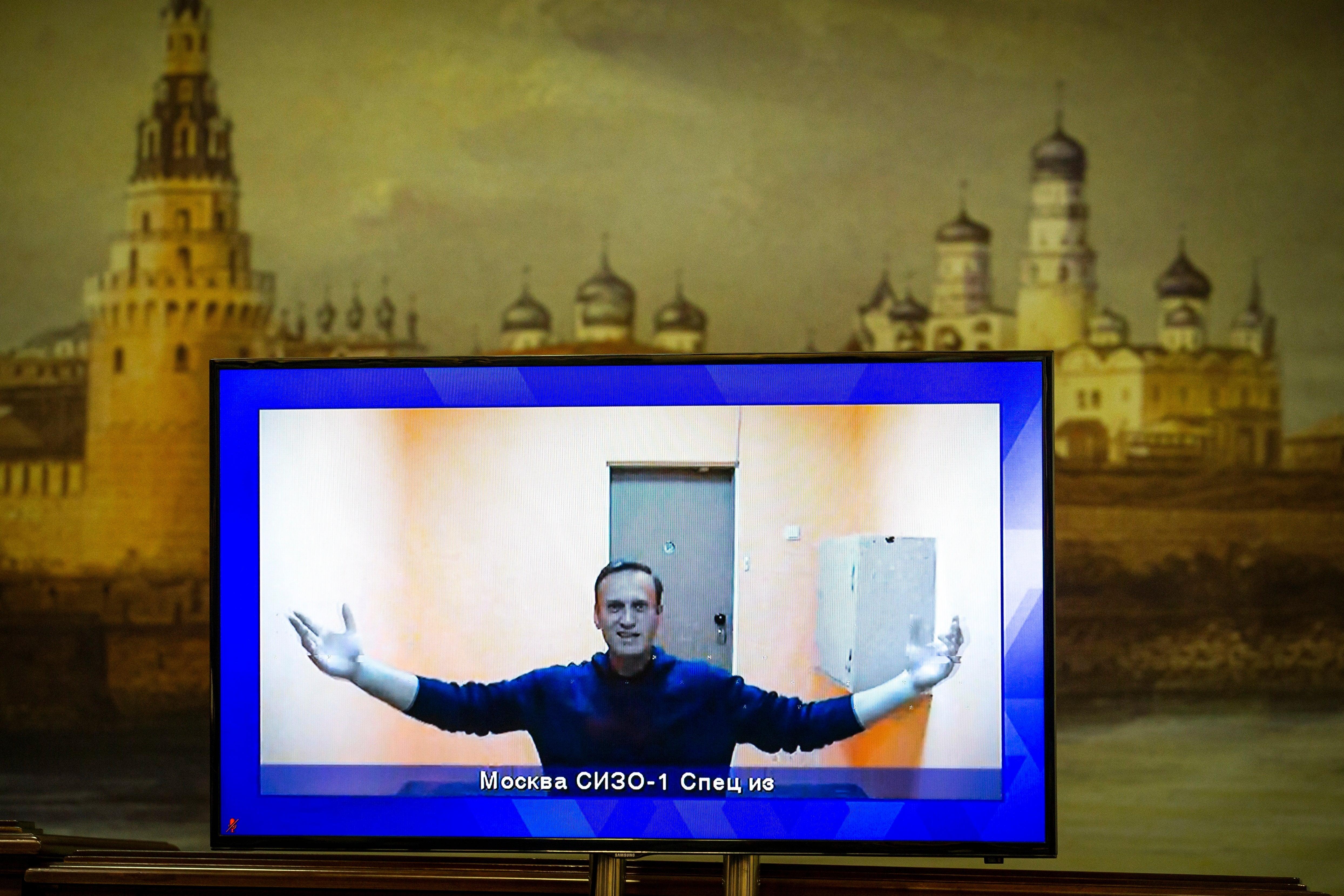Moscow court mulls house arrest for Navalny's allies
A Moscow court is considering a request to put several allies of Russian opposition leader Alexei Navalny under house arrest as authorities work to stymie more protests over the anti-corruption investigator’s jailing

A Moscow court on Friday considered a request to put several allies of Russian opposition leader Alexei Navalny under house arrest as authorities work to stymie more protests over the anti-corruption investigator's jailing.
Navalny's supporters are calling for rallies on Sunday to demand his freedom. Tens of thousands of people rallied across Russia last weekend to protest his Jan. 17 arrest and 30-day detention.
The 44-year-old Navalny, the best-known critic of President Vladimir Putin’s government, was arrested upon returning from Germany where he spent five months recovering from nerve-agent poisoning that he blames on the Kremlin. Russian authorities have rejected the accusations.
Navalny was jailed for 30 days after Russia’s prison service alleged he had violated the probation terms of his suspended sentence from a 2014 money-laundering conviction that he has rejected as politically motivated. A Moscow court on Thursday rejected his appeal for his release, and another hearing next week could turn his 3 1/2-year suspended sentence into a real one.
As part of government efforts to stem the tide of protests, police detained Navalny’s brother, Oleg; his top ally, Lyubov Sobol; Oleg Stepanov, the head of Navalny’s Moscow office; Dr. Anastasia Vasilyeva from the Navalny-backed Alliance of Doctors; and Maria Alyokhina from the Pussy Riot punk collective. They were detained for 48 hours as part of a criminal probe into alleged violations of coronavirus regulations during Saturday’s protests.
Sobol's lawyer, Vladimir Voronin, said on Twitter that investigators asked Moscow's Tverskoy District Court to put Sobol and the four others under house arrest.
In a strong challenge to the Kremlin, demonstrations calling for Navalny’s release took place in more than 100 Russian cities Saturday, Nearly 4,000 people were reportedly detained at those protests, and some were given fines and jail terms.
In Moscow, over 1,600 people have been charged with violations, and 154 received jail terms ranging from seven to 15 days for their involvement in last Saturday's protests, the Moscow City Court said Friday.
Navalny’s arrest and the harsh police actions at the protests have brought wide criticism from the West and calls for his release.
Appearing in court via video link from jail, Navalny on Thursday denounced the criminal proceedings against him as part of a government campaign to intimidate the opposition.
“You won’t succeed in scaring tens of millions of people who have been robbed by that government,” he said. “Yes, you have the power now to put me in handcuffs, but it’s not going to last forever.”
Navalny fell into a coma on Aug. 20 while on a domestic flight from Siberia to Moscow. He was transferred to a Berlin hospital two days later. Labs in Germany, France and Sweden, and tests by the Organization for the Prohibition of Chemical Weapons, established that he was exposed to the Soviet-era Novichok nerve agent.
Russian authorities have refused to open a full-fledged criminal inquiry, citing a lack of evidence that he was poisoned.
Bookmark popover
Removed from bookmarks